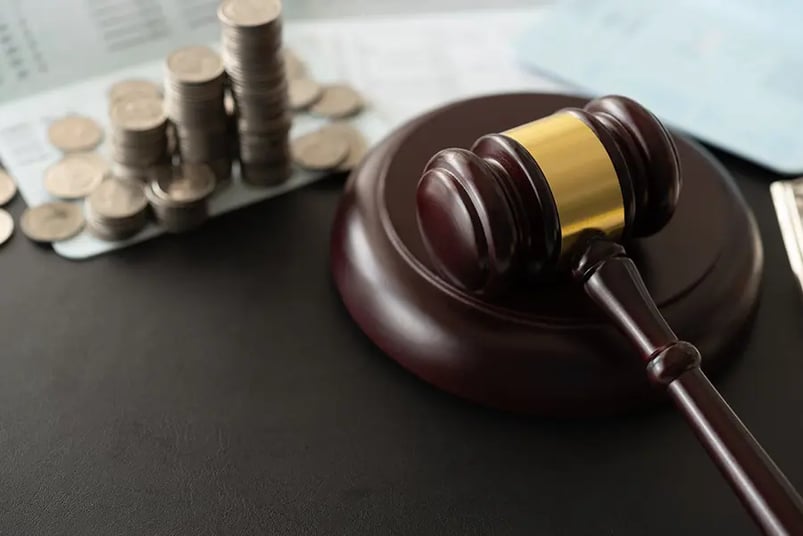 A bank receivership was implemented in the collapse of Silicon Valley Bank, which has been an important topic of conversation since early March. That is when the California Department of Financial Protection and Innovation (CA DFPI) took possession of SVB and closed it.
A bank receivership was implemented in the collapse of Silicon Valley Bank, which has been an important topic of conversation since early March. That is when the California Department of Financial Protection and Innovation (CA DFPI) took possession of SVB and closed it.
The closure on March 10, 2023 resulted from Silicon Valley Bank’s insolvency and inadequate liquidity. Immediately at the point of closure, the Federal Deposit Insurance Corporation (FDIC) was appointed as the receiver.
The FDIC then created the Deposit Insurance National Bank of Santa Clara (DINB) and transferred all of SVB’s insured deposits to DINB. Following those steps, the FDIC created the Silicon Valley Bridge Bank, N.A. (SVBB), where they transferred all of the insured deposits, uninsured deposits, and assets of both SVP and DINB.
Events repeated on Sunday, March 12, 2023 when the NY DFS also took possession of Signature Bank and immediately appointed the FDIC to serve as receiver. The FDIC’s newly created bank, where they transferred Signature’s uninsured assets, insured deposits, and assets, is called Signature Bridge Bank, N.A. (SBB).
What Will a Receivership Do for Silicon Valley Bank?
The first step for the appointed receiver was to establish new banks that could hold all of Silicon Valley Bank’s deposits and assets.
Second, they worked with the Federal Reserve to ensure that mechanisms were in place to give SVB depositors access to their deposits without violating the FDI Act or causing additional liquidity issues.
SVB is the second-largest bank in US history that has been placed into the receivership of the FDIC. Signature Bank is the third-largest.
The largest bank to be put into receivership under the FDIC was Washington Mutual. During the 2008 financial crisis, WAMU’s assets and deposits were transferred to JP Morgan Chase Bank (JPMC).
How Bank Receiverships Help Depositors
As a receiver, the FDIC’s goal is to make all depositors whole, whether their deposits are insured or uninsured.
The FDIC has assured that SVB’s debit cards will continue to function without interruption and that they will continue to receive their direct deposits. Scheduled auto-payments and online bill payments will continue.
The FDIC also ensures that account numbers will not change without advance notice.
A receiver is a neutral third party who works to uphold a judge’s instructions. In the case of banks, the FDIC works to resolve receiverships as quickly as possible. Efficiency is a big part of the process.
How Banks Can Use Receiverships
Receivers are typically appointed by the courts when a business or property is failing, abandoned, or at the center of an unresolvable dispute.
Like any other business, a bank can come under the authority of a receiver when a judge determines that the receivership remedy is necessary.
It is much less common for large banks like SVB and Signature to be placed under receivership, but small and medium-sized banks are overseen by court-appointed receivers every year.
A bank uses a receivership to avoid bankrupting its depositors in a liquidity crisis or shutdown. Essentially, if a bank cannot meet its financial obligations, it becomes insolvent. At that point, the receivership remedy may be implemented.
Bank receiverships can be appointed on an emergency basis, which means they are a faster solution than other options.
Other Types of Receiverships
In addition to a bank receivership, there are several other kinds of receivers:
- Health & Safety Receiverships
- Partition Referees
- Business Dispute Receiverships
- Cannabis Receiverships
- Rents & Profits Receiverships
- Post-Judgment Receiverships
Questions About Bank Receiverships? Griswold Law Can Answer Them
Richardson “Red” Griswold has been appointed as a receiver in over 150 cases by the California court system. Our team knows receiverships!
We are interested in how the FDIC’s receivership of SVB and Signature Bank plays out. These receiverships are unusual but fascinating to those of us in the receivership industry. Rarely are such large financial institutions in need of this kind of remedy.
If you have questions about court-appointed receivers in California, reach out to us. We are ready to answer your questions and help you find out more information.


